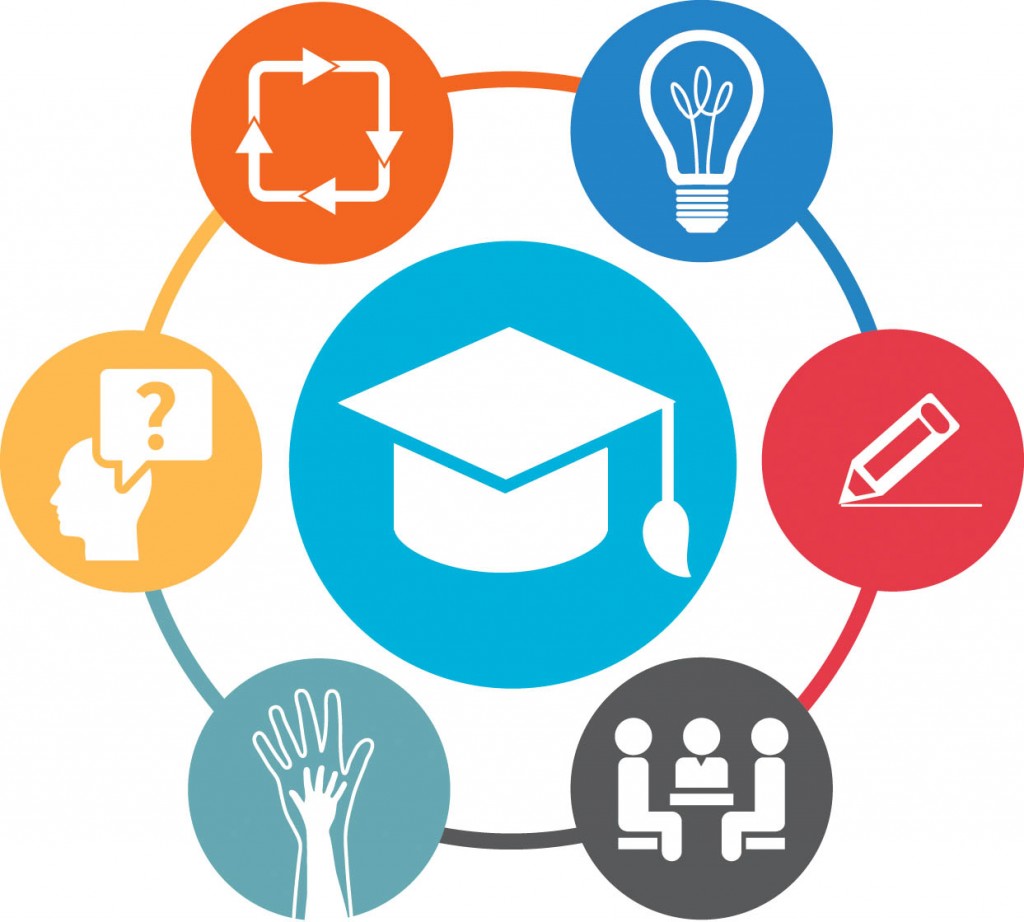
Provide a road map
Providing supportive material [such as diagrams and models] in advance can make a big difference in helping students grasp and lock in key concepts presented in a lecture. It shows them the basic framework or model of the concept that will be presented, so they can begin building it in their minds.
— Mark McDaniel, PhD, professor of psychology in Arts & Sciences and co-director of the university’s Center for Integrative Research on Cognition, Learning and Education
Be open minded
Students can have an enormous impact on creating a more inclusive learning environment by questioning assumptions that they may have about who “belongs” at an institution, in a specific discipline or in specific professions and roles. They can also understand that learning often involves a feeling of discomfort or consternation as they consider ideas and perspectives that are widely different from their own. Students can also be aware of their own comfort zones and push themselves to take on new challenges in how they learn and engage with others.
— Beth A. Fisher, PhD, director of academic services at the Teaching Center
Parents as educators
Parents should remind their children that they are at school to learn from their teachers and their peers. Also, setting regular bedtime hours, reading to children every night and feeding them healthy food will help them shine in the classroom, no matter what the age. And don’t underestimate the importance of the arts. The arts are the other hand that must work together to aid learning. The research shows the connection between music, dance and art strengthening education.
— Institute for School Partnership staff, which helps improve teaching and learning in the local K–12 education community
Learn how to learn
Learning is an academic enterprise. Sitting in a classroom, taking notes and doing all the assigned homework by itself does not mean that students are learning. That becomes the input. It is what they do with that input that moves it into the realm of learning. Students also have to develop an open mindset. Some students go, “This is hard. I must not be ‘smart’ enough to do it.” And that comes out of a fixed mindset. But when they have an open mindset, they realize, “If I put some additional effort into it, then I can begin to break it down and begin to understand it.”
— Harvey Fields, PhD, assistant director for academic programs at Cornerstone: The Center for Advanced Learning. He also directs the TRiO Student Support Services program. TRiO is a federal program implemented by the university to help students who are the first in their families to go to college, who are low income, or who have a learning or physical disability succeed academically.
Test yourself
One of the most important things professors can do in the classroom to help student learning is retrieval practice. This is a broad term for techniques where students are required to “retrieve” information from their memory. This practice requires effort by the student. It is a form of self-testing that shows the student what he or she does not know or understand. To be more effective, this self-testing should be followed by discussion among the students to justify or explain their answers.
— Regina F. Frey, PhD, executive director of the Teaching Center, the Florence E. Moog Professor of STEM Education and associate professor of chemistry in Arts & Sciences
Connect with your teachers
Communication with professors is essential. Were it not for my fantastic WashU faculty support system, I would not have enjoyed my college experience nearly as much. Checking in with professors helped me know where I stood in my classes and gave me a lot of one-on-one experience with individuals who were clearly much more knowledgeable than I was in their respective areas. After making myself available to my professors, I realized they made themselves much more available to me.
— Lauren Henley, AB ’15, former Ervin Scholar whose archival and primary source scholarship at Washington University earned her a competitive Beinecke Scholarship for graduate study. She is currently in a doctoral program in history at the University of Texas at Austin.